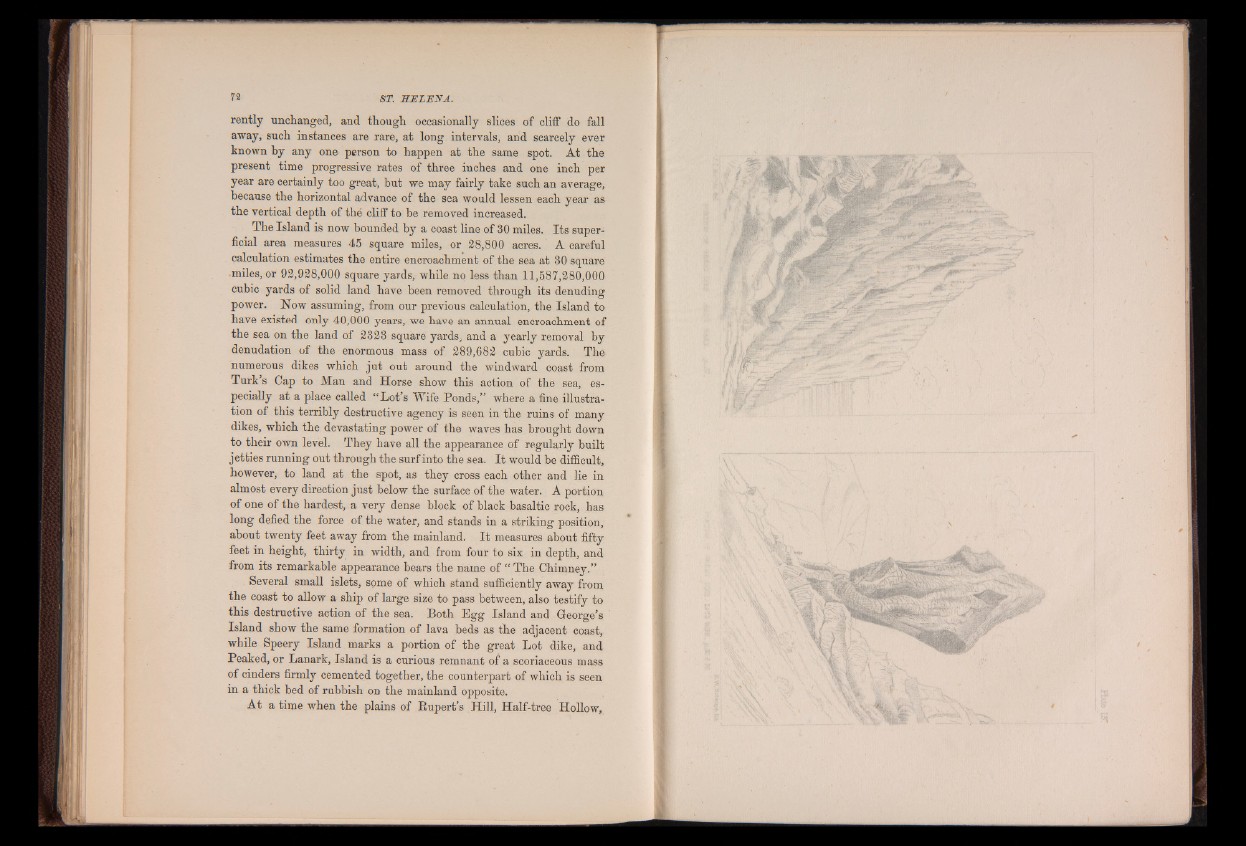
rently unchanged, and though occasionally slices of cliff do fall
away, such instances are rare, at long intervals, and scarcely ever
known by any one person to happen at the same spot. At the
present time progressive rates of three inches and one inch per
year are certainly too great, hut we may fairly take such an average,
because the horizontal advance of the sea would lessen each year as
the vertical depth of thé cliff to be removed increased.
The Island is now bounded by a coast line of 30 miles. Its superficial
area measures 45 square miles, or 28,800 acres. A careful
calculation estimates the entire encroachment of the sea at 30 square
miles, or 92,928,000 square yards, while no less than 11,587,280,000
cubic yards of solid land have been removed through its denuding
power. Now assuming, from our previous calculation, the Island to
have existed only 40,000 years, we have an annual encroachment of
the sea on the land of 2323 square yards, and a yearly removal by
denudation of the enormous mass of 289,682 cubic yards. The
numerous dikes which ju t out around the windward coast from
Turk s Cap to Man and Horse show this action of the sea, especially
at a place called “Lot’s Wife Ponds,” where a fine illustration
of this terribly destructive agency is seen in the ruins of many
dikes, which the devastating power of the waves has brought down
to their own level. They have all the appearance of regularly built
jetties running out through the surf into the sea. I t would be difficult,
however, to land at the spot, as they cross each other and lie in
almost every direction just below the surface of the water. A portion
of one of the hardest, a very dense block of black basaltic rock, has
long defied the force of the water, and stands in a striking position,
about twenty feet away from the mainland. I t measures about fifty
feet in height, thirty in width, and from four to six in depth, and
from its remarkable appearance bears the name of “ The Chimney.”
Several small islets, some of which stand sufficiently away from
the coast to allow a ship of large size to pass between, also testify to
this destructive action of the sea. Both Egg Island and George’s
Island show the same formation of lava beds as the adjacent coast,
while Speery Island marks a portion of the great Lot dike, and
Peaked, or Lanark, Island is a curious remnant of a scoriaceous mass
of cinders firmly cemented together, the counterpart of which is seen
in a thick bed of rubbish on the mainland opposite.
At a time when the plains of Rupert’s Hill, Half-tree Hollow,